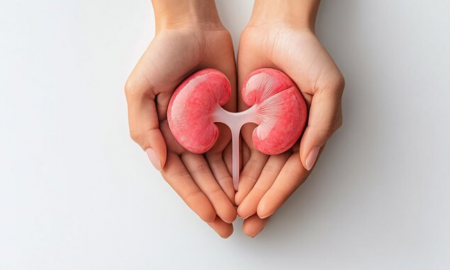
Is It Healthy to Run on an Empty Stomach?

Running on an empty stomach, often called fasted running, is a practice many runners adopt for various reasons. Some do it out of necessity, squeezing in a workout before the day begins, while others believe it offers specific health or performance benefits. But is it healthy to run on an empty stomach? Understanding the effects of running on an empty stomach is crucial for those who practice it regularly.
Is It Healthy to Run on an Empty Stomach?
Running on an empty stomach involves engaging in physical activity shortly after waking up, typically before eating breakfast. This often means the body has been without food for around ten hours since the last meal, leading to low blood sugar levels. With limited glucose available, the body turns to fat reserves for energy, which some believe helps with fat burning and weight management.

ijeab | Freepik | Running on an empty stomach involves engaging in physical activity shortly after waking up before eating breakfast.
Why Some Runners Choose Running on an Empty Stomach
For many, the decision to run on an empty stomach comes down to convenience. Early morning may be the only time available for a workout before the day’s responsibilities take over. Running without waiting for digestion after breakfast can be more practical, as it eliminates the need for an extra early start, especially on busy weekdays.
Others pursue fast running for its potential benefits. Running in a fast state forces the body to adapt to using fat as a primary energy source, which can enhance endurance, particularly in long-distance runners. This adaptation may help delay fatigue during extended activities, like marathons or trail running.
Fasted Running and Fat Burning
When the body’s glucose stores are depleted after a night’s sleep, it switches to burning fat for energy. This shift can lead to more efficient fat metabolism over time, appealing to those looking to lose weight. However, it’s important to remember that immediate weight loss after a run is mostly due to water loss from sweating. The real fat-burning benefits accumulate gradually with consistent exercise and a balanced diet.
The Challenge of Low Blood Sugar
Running on low blood sugar can be challenging, especially for those new to the practice. The body’s glycogen stores are limited, and once depleted, there’s a risk of feeling tired or light-headed during the run. This is why it’s crucial to listen to your body and not push too hard, especially during high-intensity workouts. Carrying a small snack, like a cereal bar, can be a helpful backup in case energy levels drop too low.
Effective Tips for Safe Fasted Running
If you choose to run on an empty stomach, there are several steps you can take to ensure it’s done safely:

prostooleh | Freepik | Starting your day with warm water is a good choice as it’s easier on the stomach and may hydrate more effectively.
- Hydrate First: Start your day with water or herbal tea to rehydrate after a night’s sleep. Warm water is a good choice as it’s easier on the stomach and may hydrate more effectively.
- Take Time to Wake Up: Allow yourself 10 to 15 minutes to fully wake up before hitting the pavement. This short period helps your body prepare for the physical exertion ahead.
- Warm Up Properly: Focus on dynamic stretches, particularly for the ankles and joints. A proper warm-up increases blood flow and reduces the risk of injury.
- Pace Yourself: Keep your run at a moderate pace where you can comfortably hold a conversation. This helps prevent overexertion, especially when your body runs low on readily available energy.
- Limit Fasted Runs: Fasted running shouldn’t be a daily practice. Aim to do it no more than once every two days to avoid excessive depletion of energy stores, which could lead to unwanted fatigue.
- Listen to Your Body: Be mindful of how your body feels during the run. If you experience dizziness, nausea, or extreme fatigue, cutting the run short or having a small snack may be wise.
Refueling After Your Run
Refueling is essential for recovery after completing a run on an empty stomach. An ideal breakfast is a balanced breakfast rich in protein and fruits. Foods like eggs and bananas provide the necessary nutrients to help your muscles recover and replenish lost energy.
More inHealthy Trends
-
`
Concussion in Children: What Parents Need to Know for Safe Recovery
A concussion in children, especially from contact sports, requires careful attention to symptoms and recovery. A concussion, or mild traumatic brain...
November 15, 2024 -
`
Can Hypochlorous Acid Transform Your Skin Routine and Banish Acne?
Hypochlorous acid is rapidly gaining attention in the skincare world thanks to its potential to fight acne and support clear skin....
November 8, 2024 -
`
How Calisthenics Can Help Improve Your Overall Fitness?
Calisthenics is not a mere workout. It is a fitness revolution. Unlike weightlifting or running, calisthenics uses only your body weight...
November 2, 2024 -
`
10 Must-Have Foods for Kidney Health You Need in Your Diet
Our kidneys are powerhouse organs, working constantly to remove waste, balance fluids, and regulate essential minerals like sodium and potassium. These...
October 26, 2024 -
`
The Les Mills Fitness Festival in Riyadh | An Immersive Fitness Experience
The Les Mills Fitness Festival is coming to Riyadh. It is set to be a fitness experience like no other! On...
October 19, 2024 -
`
How Healthy Are Oats Actually? A Closer Look
Oats have become a staple in many breakfast bowls and snack bars. But are oats healthy? The short answer is yes!...
October 11, 2024 -
`
Here’s How You Can Detox Your Body & Start Afresh
Feeling sluggish, bloated, or mentally foggy? Learning how to detox may be the solution you need to refresh your body and...
October 4, 2024 -
`
Why Do Major Brands Still Depend on Synthetic Fibers in Fashion?
In today’s fashion industry, despite growing awareness around sustainability and environmental concerns, many leading brands continue to rely heavily on synthetic fibers...
September 28, 2024 -
`
Rucking | Why This Low-Impact Exercise Is Trending
Rucking is quickly becoming one of the most talked-about workouts in fitness circles. If you are unfamiliar with the term, rucking...
September 21, 2024















You must be logged in to post a comment Login